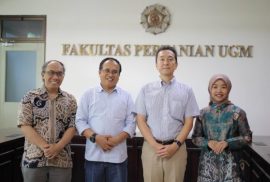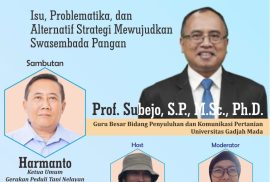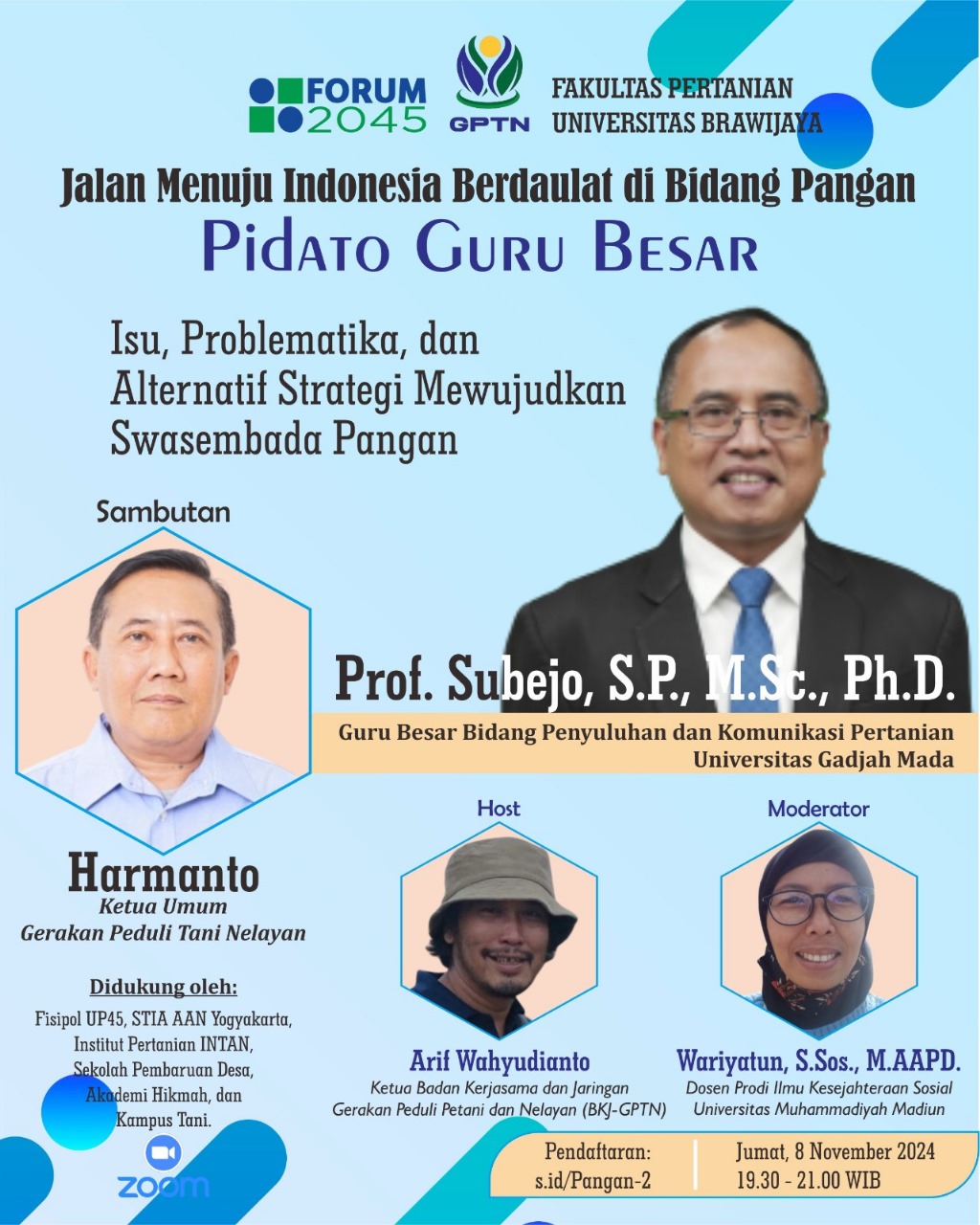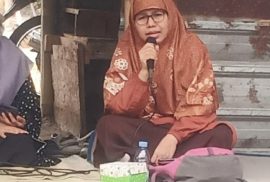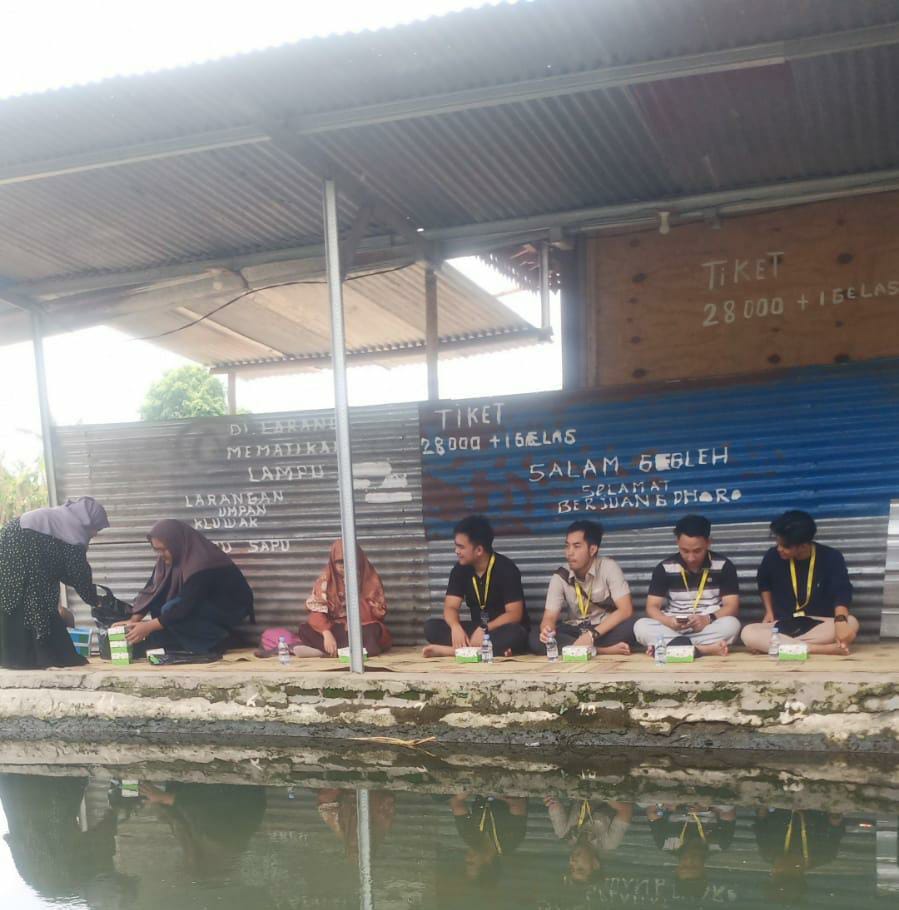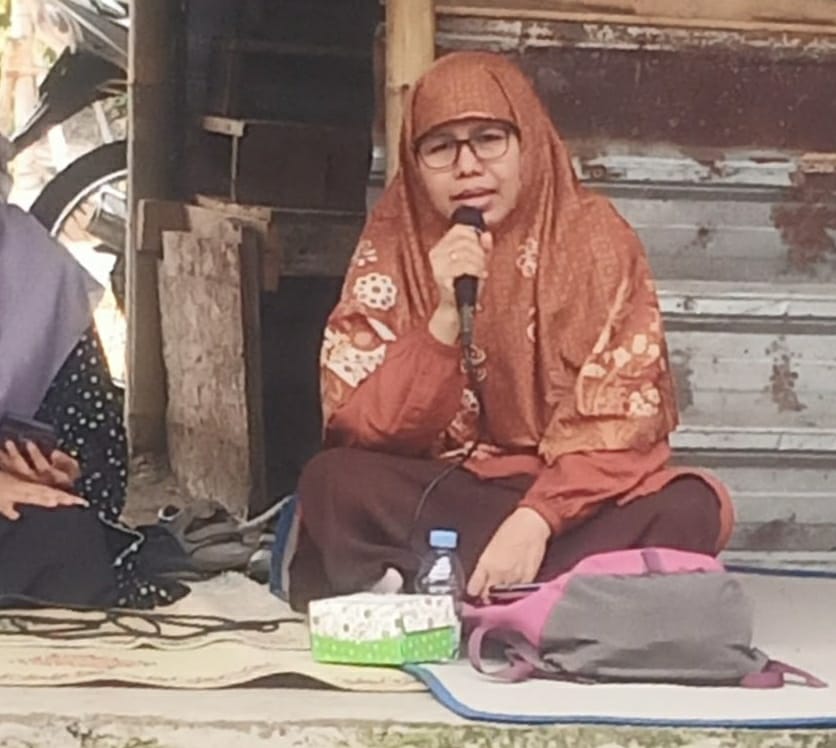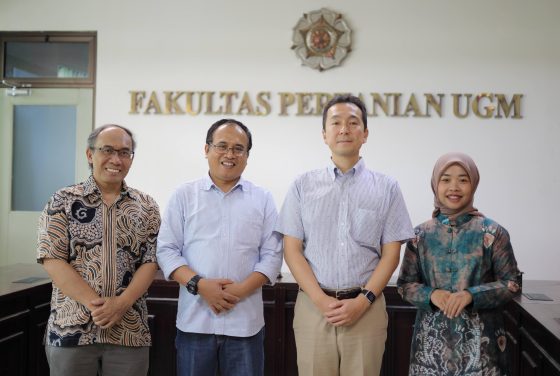
The Faculty of Agriculture, Universitas Gadjah Mada (Faperta UGM) recently welcomed representatives from The United Graduate School of Agricultural Sciences (UGAS), Iwate University, Japan, on Thursday, 28 November 2024. The visit marked a potential opportunity for international collaboration in research and education.
The meeting was attended by two representatives from Iwate University: Prof. Harashina Koji, Associate Dean of UGAS, and Aikawa Kazunori, academic staff of UGAS. From the Faculty of Agriculture UGM, attendees included Prof. Subejo, S.P., M.Sc., Vice Dean for Research, Community Service, and Collaboration; Prof. Dr. Ir. Benito Heru Purwanto, M.P., M.Agr., Head of the Department of Soil Science; and Tantriani, S.P., M.Agr., Ph.D., a lecturer at Faperta UGM and alumna of the UGAS doctoral program.

The discussion was held in a warm and engaging atmosphere, focusing on strategic collaboration opportunities in research, student and staff exchange, and double degree programs. Both universities plan to sign a Memorandum of Understanding (MoU) to formalize and strengthen this partnership. The MoU is expected to serve as a foundation for expanding international academic networks and enhancing the quality of joint agricultural research. During the visit, an interview was also conducted with Tantriani, S.P., M.Agr., Ph.D., an alumna of the UGAS doctoral program at Iwate University and now a lecturer at the Faculty of Agriculture UGM.
Through this visit, the Faculty of Agriculture UGM and Iwate University reaffirmed their commitment to international collaboration. The initiative is a concrete step by both institutions to continue producing high-quality graduates. This aligns with the goals of the Sustainable Development Goals (SDGs), particularly SDG 1: No Poverty, SDG 2: Zero Hunger, SDG 4: Quality Education, SDG 8: Decent Work and Economic Growth, and SDG 17: Partnerships for the Goals.
Author: Agrit Kirana Bunda
Editor: Desi Utami

